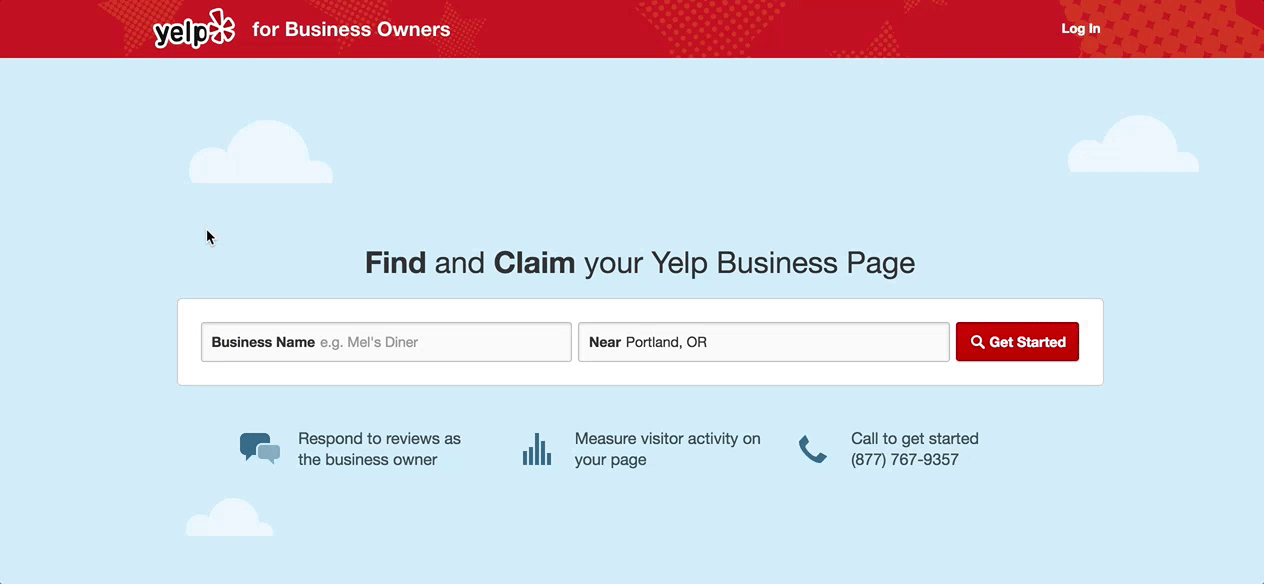7 Steps to Boost Your Local SEO
Local SEO determines your business’ local and regional visibility. For small businesses stretching a physical market, getting seen by local consumers could be their make or break point, especially under the current economical landscape.
I mean… we all are familiar with the good old sales principle of “double down when things are slow.” The same logic remains accurate with digital marketing as well.
With everyone worried about a treacherous recession, now is the time to invest in local SEO before your sales pipeline exhausts.
But… we get it. The budget is tight and you have to pick and choose.
So how about this? How about we help you out with seven test and proven wars to boost your local SEO?
The best part? You can implement these strategies by yourself.
Make Your Address Visible Across Your Website
No. Please don't copy and paste your full address into each page in the body text. Your visitors will be so sick of that!
Instead, add your full business address (yes, with the zip code!) to the footer area so it's visible and crawlable but doesn't interrupt your website’s user experience.
Also, be aware of your address format and what details you include. Ideally, your business address should remain constant across listings. For example,
Google My Business
Yelp
Any local directory listings
Any industry directory listings
Anytime your business is mentioned by the media
The address on your social media pages
This means you should pay additional attention if you have a different mailing address, you work from a complex, officer suite, or co-working space, or if you're a transient business based in another state.
Finally, never use your residential address as your listed address. It doesn't matter if your business is legally registered there, nor does it matter if you have a honey office. Using a residential address as your public listing address creates safety concerns. It also raises other legal issues you probably don't want to deal with.
Break Down Your Service Areas
Do you serve multiple markets? Then, dedicate a good website portion to break down your service areas. If you can come up with unique copies for each sub-market, even better!
Of course, you might argue that your service area isn't big enough, or they belong to the same city or county.
Well, there are ways to get around that.
For example, if you are a Kansas City small business, you can say you serve the KC Metro Area. Or, you can indicate you serve both Jackson and Johnson county.
If you really want to boost your local SEO, you can break it further down into neighborhoods, such as downtown, the Plaza, the Crossroads, etc. Nonetheless, be careful not to overdo this. Always remember that your website content should provide value to your visitors and should never feel cumbersome to them.
Source: Search Engine Journal
Target Local and Regional Keywords
Remember what we talked about when you asked us how to find the right keywords on Google? If not, you better hop back over to that article for a refresher because we did mention the difference between global and local keywords.
Simply put, nearly all keywords have a local version. For example, a user can search “the best digital marketing agencies”, or “best digital marketing agencies in Kansas City.” Most local keywords would have the structure of “main keyword + location/region,” so it’s quite easy to add them to your web copies.
If you’ve already added your address to the website, Google’s algorithm will also automatically include you under the regional queries, even if your site isn’t optimized for those keywords (but again, what’s the point, you wouldn’t be ranking if that’s the case). That’s why optimizing for local keywords is sometimes more important than chasing the larger volume keywords. After all, if you serve a physical market, it makes more sense to try to be seen by people living there than those living in the state next door.
Take Care of Your Google My Business Listing
Ever since Google took away the Google+ function, many mistook it as a sign that GMB listings are no longer important. Well, aren’t they deadly wrong! Google My Business remains a core piece of small business SEO, especially for those targeting a local market. Therefore, if you want to boost your local SEO, you better make sure your GMB listing follows all the digital marketing best practices.
This include
Claim your listing on Google
Make sure the address on your GMB listing is consistent with the one you use on your website.
Add your business description and category
Upload at least 3 to 5 high-quality pictures for your business.
Start collecting reviews from previous customers
Update your Covid-19 hours if necessary
Use the special attributes to highlight accessibility features and more
Finally, maintain your GMB listing like another social media profile and make regular updates. When most people treat their listing as a static directory page, keeping your listing updated will help you stand out from the competition.
Source: Synup
Local Directory Listings
Yelp and other industry-specific directory listings are great ways to boost your local SEO. But they’re also lead generation tools that could bring you new business instantly.
However, make sure you list your businesses with trustworthy platforms. There are too many pay-to-play platforms nowadays and none of those would help with your local visibility. Instead, if you list at a low DA site, Google might think your domain is less trustworthy.
Some great directories worth looking into include your local chamber of commerce listings, industry group listings, Yelp, Thumbtack, Angie’s List, and other reputable listing platforms. However, many of these platforms want you to collect reviews, so make sure you have the capacity to polish those profiles up. A dead, shell listing is not going to help your business and honestly isn’t worth your time.
Invest in Backlinks
Backlinking is tricky, because it goes beyond SEO and steeps the traditional public relations world. You’ve probably heard plenty of people saying the old media exposure is outdated in today’s market, but that’s not true. So many businesses still gain amazing momentum from media coverage as long as they know how to maximize the return.
Furthermore, professional media tend to have more authoritarian domains. Getting a link back from Forbes or CNBC is 100x more effective than some random guest posting link back. Do you want to spend all day responding to anonymous pitches and sending link requests out to the millions of blog sites in the world, or would you rather get one or two high quality media link?
Think about that for a second. I think you already have the answers.
Social Media for Local SEO
Well, maybe social media doesn’t have too much to do with SEO nowadays, they’re still crucial to businesses hoping to reach the local community. Social media is also a great content amplification tool that makes your content more favorable by Google’s algorithm. But the main reason why you should include social media strategy as part of your SEO plan? It’s still the most effective way to build brand presence and audience engagement.
Depending on your business’ nature, you might also consider running social media ads, or start a Facebook Group. However, only invest in the strategies that make the most sense to your business model and offerings. Just because everyone else has a group doesn’t mean your business would benefit from one too.


